
TL;DR
- A coworking space for therapists is a shared office with private, soundproof rooms tailored to mental health professionals.
- The big win is affordability and flexibility with furnished rooms and pay-by-hour options that reduce overhead and risk.
- Automation streamlines bookings, payments, and follow-ups so therapists can grow a practice while running the space efficiently.
Last updated: October 31, 2025
When part-time therapists are looking for an affordable and comfortable place to build their practice, the traditional lease just doesn’t make sense.
Because of this, most mental health practitioners are forced to either share their office with someone else (a logistical nightmare) or be subject to expensive, inflexible leases they can barely afford.
That is, until coworking spaces for therapists came along.
Here at Optix, our client list of coworking spaces for therapists is growing rapidly. In fact, we predict it will be one of the fastest growing coworking niches in the next 3 years.
In this article, we’ll walk you through exactly what a coworking space for therapists is, why it’s so popular, and what you need to know before starting your own.
- What is a coworking space for therapists?
- Why do flexible coworking offices work for therapists?
- Why are therapy-focused coworking spaces becoming popular in North America?
- What amenities can you find in shared workspaces for therapists?
- What are the benefits of coworking spaces for mental health professionals?
- What design features are commonly found in coworking spaces for therapists?
- What are some examples of coworking spaces for therapists?
- What does a membership plan for a coworking space for therapists look like?
- What technology do you need to run a coworking space for therapists?
- How does automation benefit coworking spaces for therapists?
- How to launch a coworking space for therapists
What is a coworking space for therapists?
A coworking space for therapists (shared offices for therapists, therapy coworking space) is a shared workspace designed specifically for mental health professionals including therapists, counselors, and psychologists. It is usually made up of several private, sound-proof rooms outfitted for therapists (think: soft couches, cozy pillows, and low lighting).
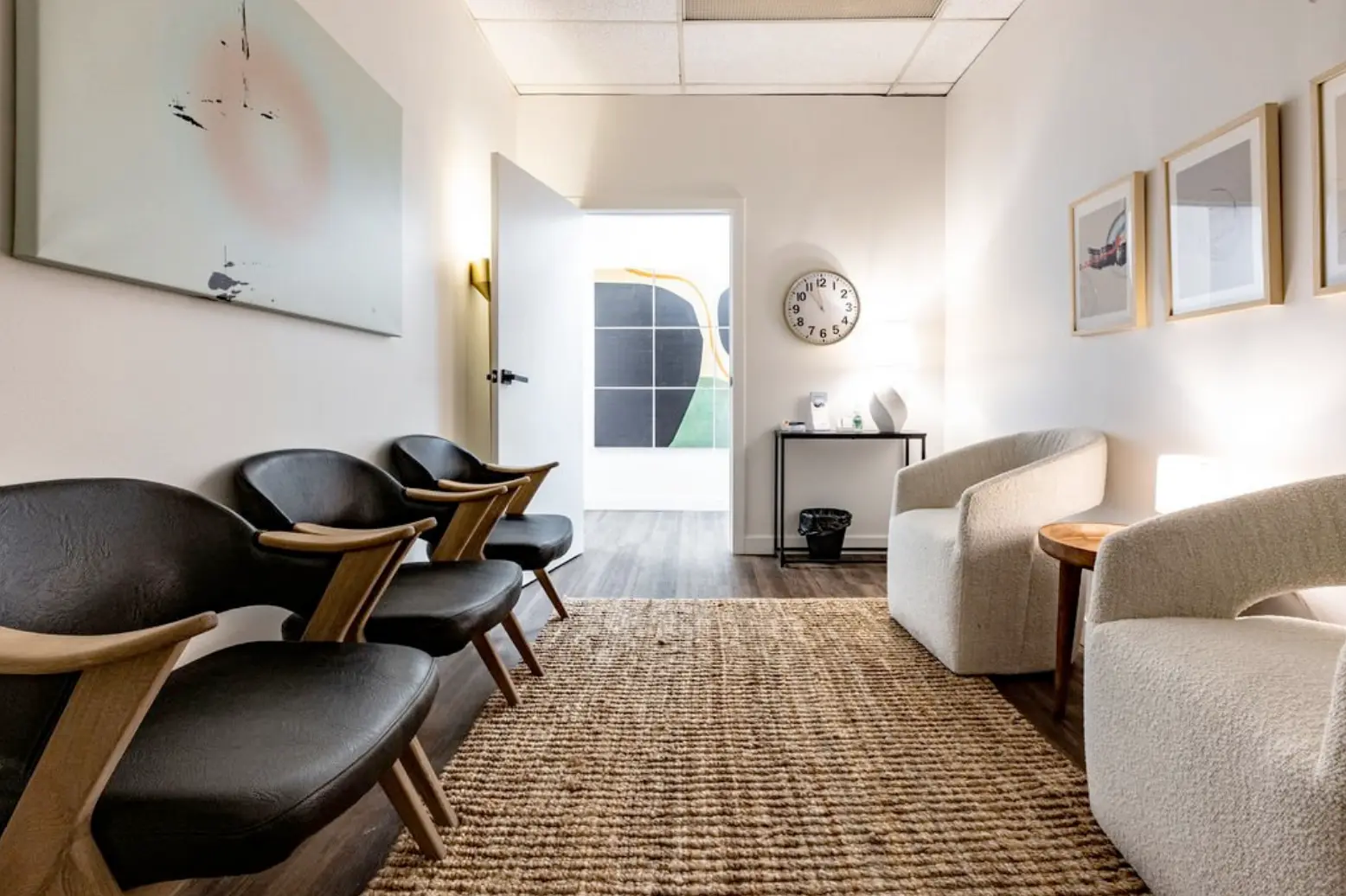
In these shared spaces, professionals can conduct therapy sessions, hold meetings with clients, and engage in other work-related activities in a private and comfortable setting.
Why do flexible coworking offices work for therapists?
Traditionally, therapists with private practices would rent an office in a mixed-use building on a full-time basis with a long-term lease. The challenge is, these leases were typically inflexible and required a significant investment of time and capital.
In contrast, flexible offices can provide mental health practitioners with a fully equipped private office or consultation room on a monthly, daily, or even hourly basis. There is no long-term commitment, no expensive furniture to purchase, and no up-front investment required.
This is a radical and welcomed change from how offices traditionally worked for therapists.
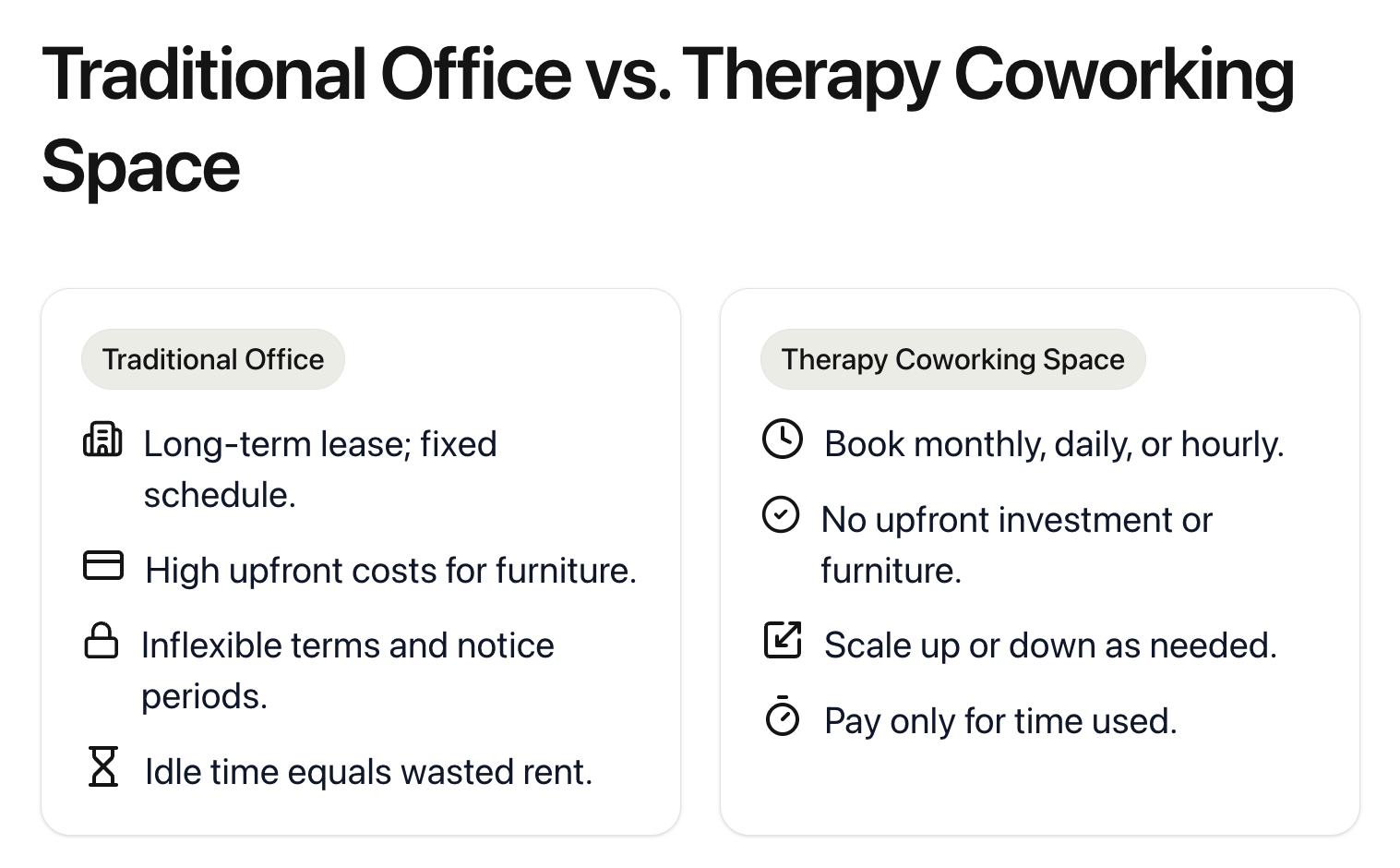
Deborah Schoenblum and Rachael Berezin, co-founders at therapist-centered coworking space Brooklyn Hourly Offices, experienced a lot of these difficulties themselves when trying to find a part-time office to fit their schedule. This led them to create on-demand offices specifically for mental health professionals where they charge practitioners on an hourly basis.
Why are therapy-focused coworking spaces becoming popular in North America?
The first coworking space for therapists opened in 2018. Since then, shared workspaces for mental health professionals have opened up all over the world, with a boom in growth over the last 4-5 years post COVID. Here’s why.
The mental health profession is surging
One of the biggest reasons why therapy coworking spaces are becoming more popular is because of the rise of mental health professionals and mental health care.
According to CNN, mental health jobs are expected to grow by 12% over the next 10 years which is approximately 3x the average of all other jobs in the US. This translates to over 100,000 more people entering the mental health profession in the next 10 years – and these people will need some place to work.
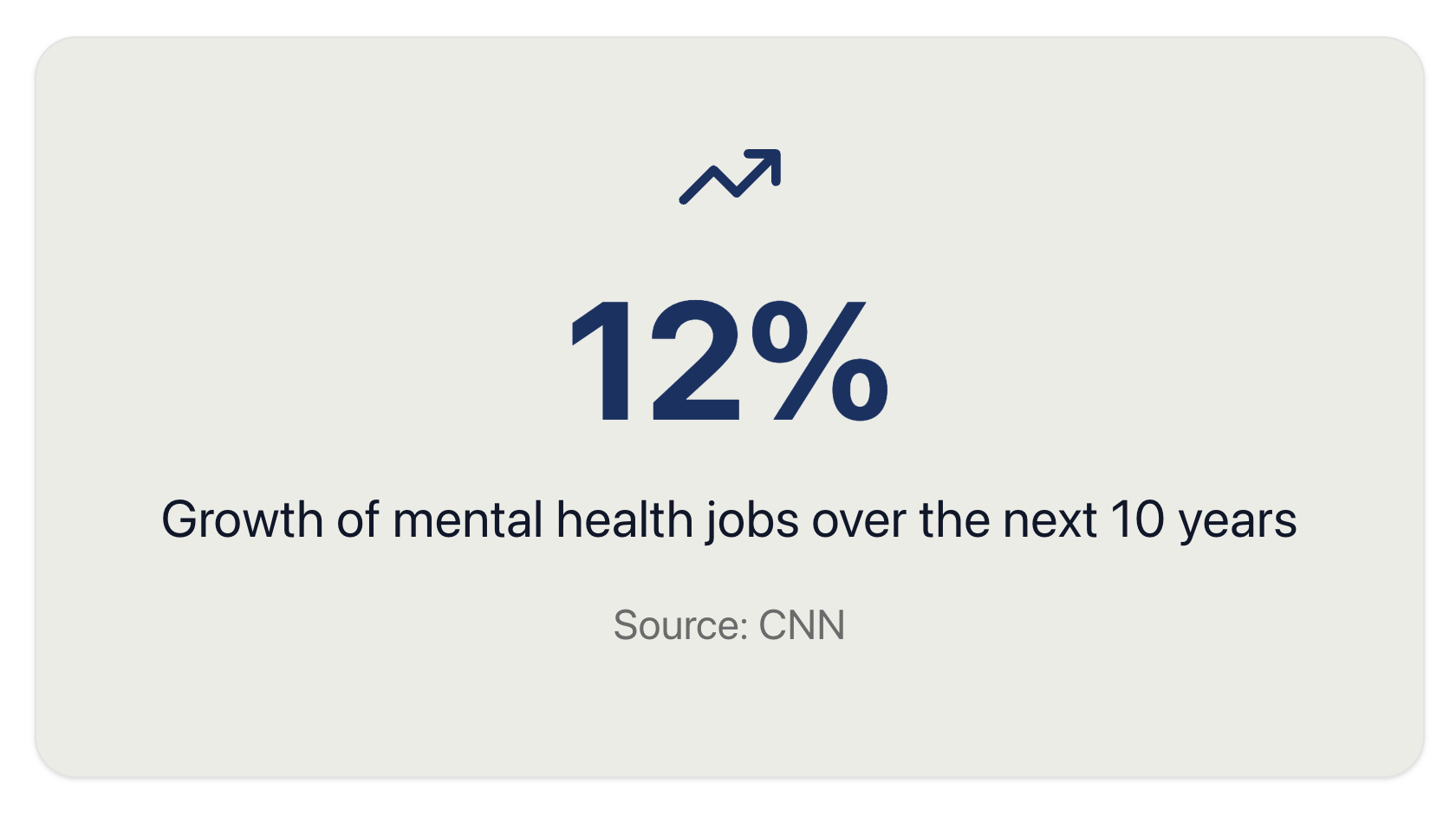
The way therapists practice has changed
According to the American Psychological Association (APA), COVID-19 forced many mental health practitioners online. As it turned out, virtual therapy was more affordable, more accessible, and much preferred for many individuals.
This means that instead of a therapist needing an office to see patients full-time, they can work from home a few days a week and go into an office once or twice a week as needed. Niche coworking spaces can fulfil this flexible need where traditional spaces fall flat.
Running a coworking space for therapists? Let's chat.

What amenities can you find in shared workspaces for therapists?
The main offering in a shared workspace for therapists is private rooms or offices, anywhere from two or three to 15+. In addition to private rooms, therapist-centered coworking spaces usually offer other amenities including:
- Reception services
- Access to tools and resources
- Networking events
- Professional development opportunities
- Virtual mail
Some spaces even use technology as an amenity for members, like a digital community in Optix or a mediation app free of charge.

Center You offers shared offices for therapists in Pasadena, California. They provide their community with a long list of amenities and perks including a monthly happy hour event, library of books for use, and a collection of children’s books and games.
This helps therapists feel like they’re really joining a community, not just purchasing an office.
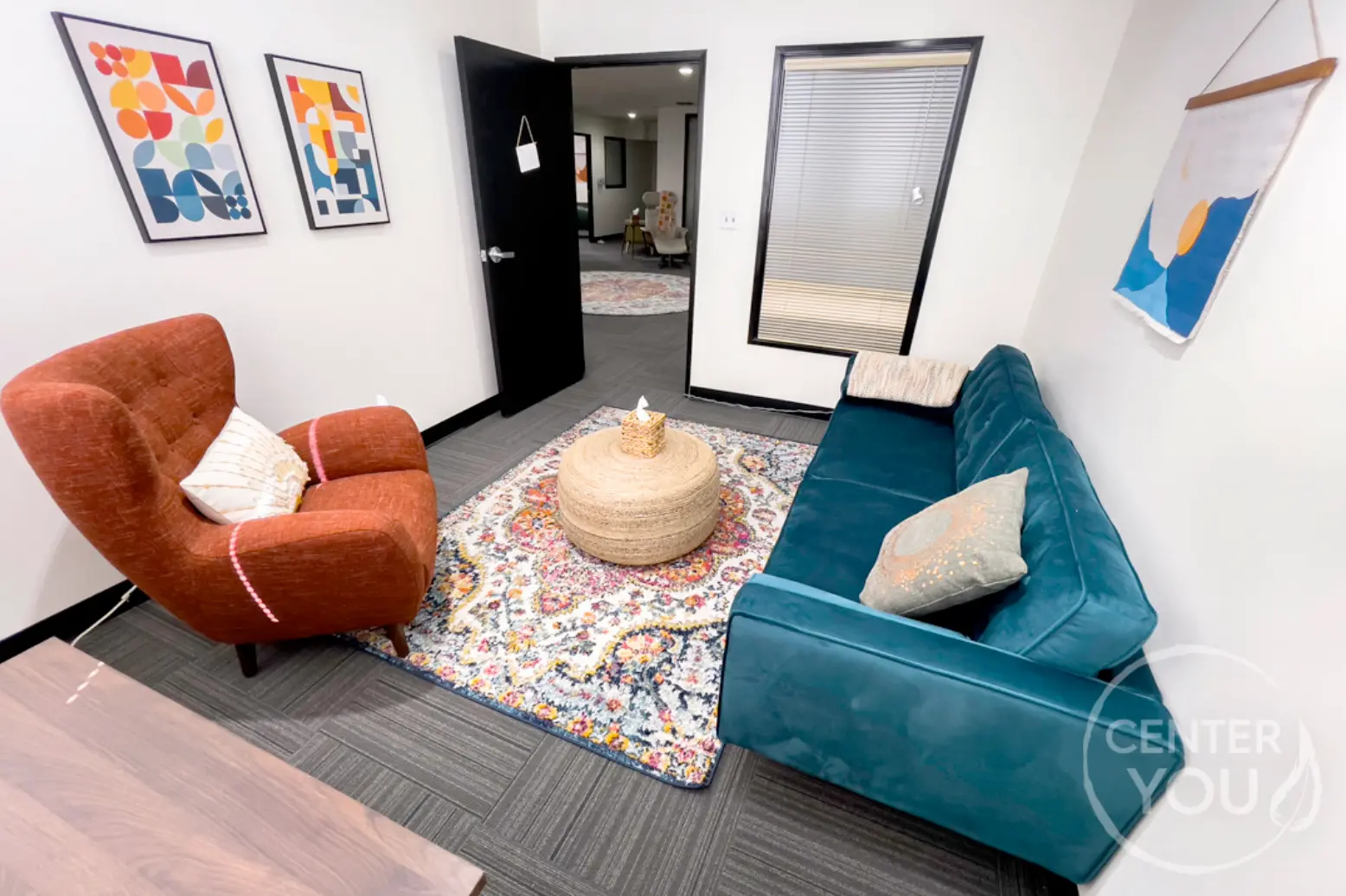
What are the benefits of coworking spaces for mental health professionals?
As any therapist will tell you, coworking spaces are key in helping to start and run their own private practice. Here are a few of the benefits of therapy coworking spaces we hear most often from our clients.
Access to affordable practice space
By far, the greatest benefit to the coworking and therapy model is affordability. In a major city like Vancouver, renting a private office space can easily cost as much as $1,000/mo or more.
Brooklyn Hourly Offices charge just $40/hour to use their space. This allows therapists to access high-quality facilities and resources at a fraction of the cost.
Greater flexibility with lease agreements and office size
Another benefit we often hear from operators is greater flexibility for therapists, both in terms of lease agreements and office size. In a shared workspace, therapists can choose their membership plan and access the space as needed on a monthly, weekly, daily, or hourly basis.
As their practice grows, they can easily scale up their space requirements without the hassle of relocating or negotiating new leases.
View this post on Instagram
A post shared by Common Ground | Coworking Space for Therapists (@commongroundhsv)
Access to a professional, fully-furnished environment
Not only do therapists renting their own offices need to think about the cost of renting the physical coworking space, they also need to think about the cost and logistics of furnishing it.
Therapy coworking spaces come fully furnished, from couches to lamps, providing a professional environment without the hassle.
Reduced isolation amongst mental health professionals
Four out of ten healthcare professionals struggle with loneliness post COVID-19 according to one study. Deborah and Rachael share that although you’re always in contact with people as a therapist, you’re often working by yourself, with little to no support from other therapists or professionals.
Coworking spaces for therapists offer community and social interaction, where practitioners can interact with colleagues and create meaningful connections. This can help combat professional isolation, provide a support system, and reduce feelings of loneliness.
“When you work for yourself, whether it’s as a therapist or a freelancer, it can be a very isolating experience because you’re not going into an office and seeing other people or having meetings with your coworkers.”Deborah Schoenblum, Co-founder at Brooklyn Hourly Offices
What design features are commonly found in coworking spaces for therapists?
If you’re designing a coworking space specifically for therapists or other mental health professionals, here’s what you’ll need.
1. Well-designed therapy rooms and offices
By far, your biggest priority should be creating therapy rooms and offices that are aesthetically pleasing, calming, and comfortable. The APA recommends:
- Using light colored walls featuring blues and grays
- Opting for wooden furniture over glass
- Allowing for lots of natural light and soft lighting
- Incorporating earthy elements like plants or nature-inspired artwork into the space
These design elements focus on promoting relaxation and creating a safe space for both therapists and their clients.
One thing to consider is if you will design all of your private offices the same. While not common, Alma Therapy designed all of their private offices in exactly the same way as it has been shown to be beneficial for patients if they have a consistent therapeutic setting.
They wanted to limit disruption to patients if therapists had to switch rooms, hence they designed them all to be exactly identical.
2. Sound-proof, fully private rooms
Privacy and confidentiality are a top priority in shared spaces, especially in a therapeutic setting. Ensure the privacy of members by providing soundproof rooms, sound masking technologies, and secure access control protocols. These measures are in place to prevent the risk of eavesdropping or accidental breaches of confidentiality.
One benefit to these stringent privacy considerations is they can also broaden the target audience of your coworking space. For example, despite being targeted to therapists, Deborah and Rachael from Brooklyn Hourly Offices found that professionals who need extreme privacy, like lawyers, enjoy using their space as well.
“We’ve had lawyers use our office on an as needed basis. Tutors. Somebody who has an Etsy business. A few HR people to interview. It’s all people who need that level of privacy.”Deborah Schoenblum, Co-founder at Brooklyn Hourly Offices.
3. Amenities and resources tailored to therapist needs
While a typical coworking space may feature amenities like a ping pong table or gym, coworking spaces for therapists are likely to include more targeted amenities for their members including comfortable waiting areas for clients and reception services.
It may also be nice to have a meditation room or an event space where you can host larger therapeutic-centered events, like sound baths, or learning events like a keynote speaker.
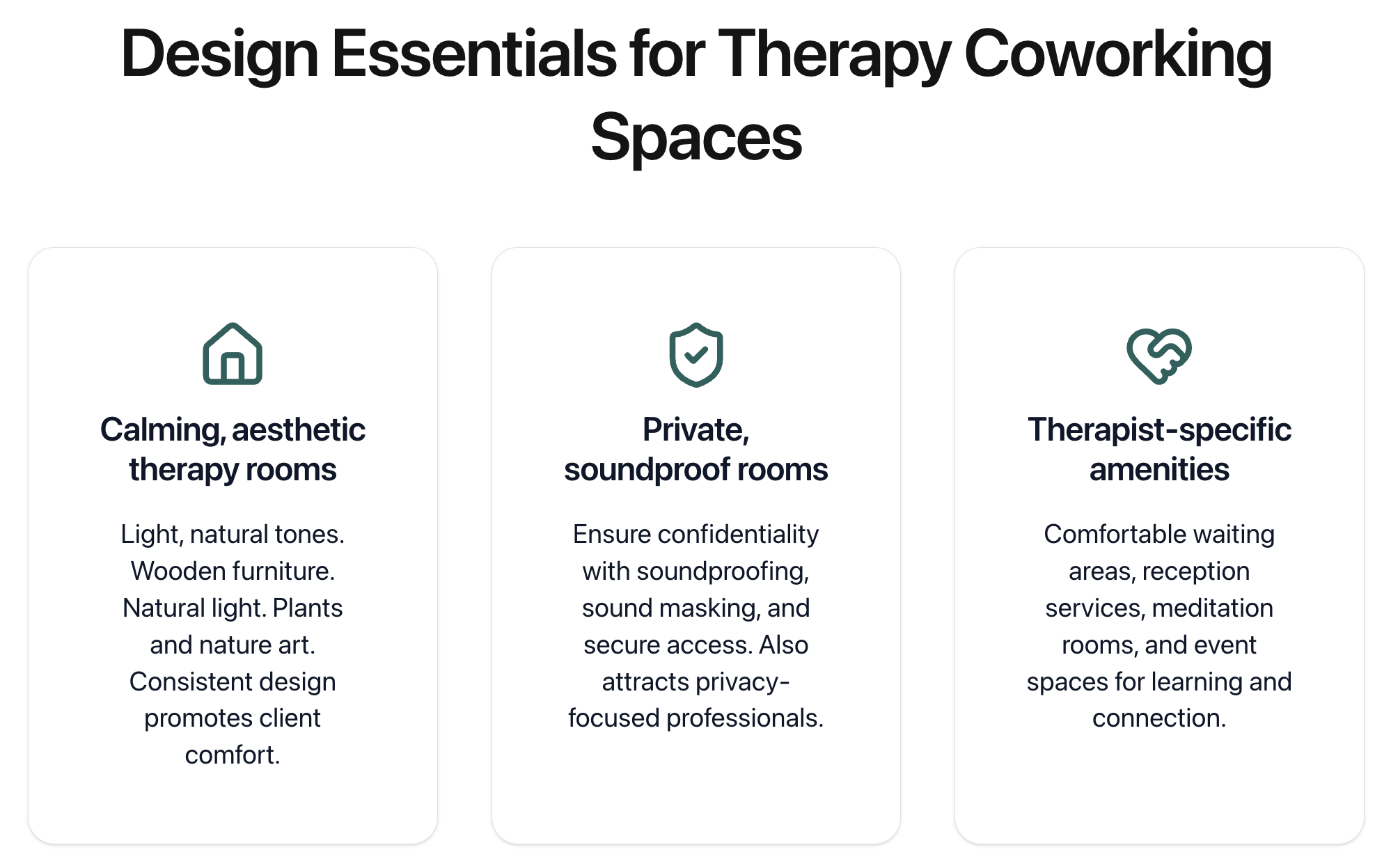
What are some examples of coworking spaces for therapists?
Here at Optix, we are proud to support a number of coworking spaces for therapists. Below are some examples of Optix clients who are among the best coworking spaces for therapists in North America.
Brooklyn Hourly Offices
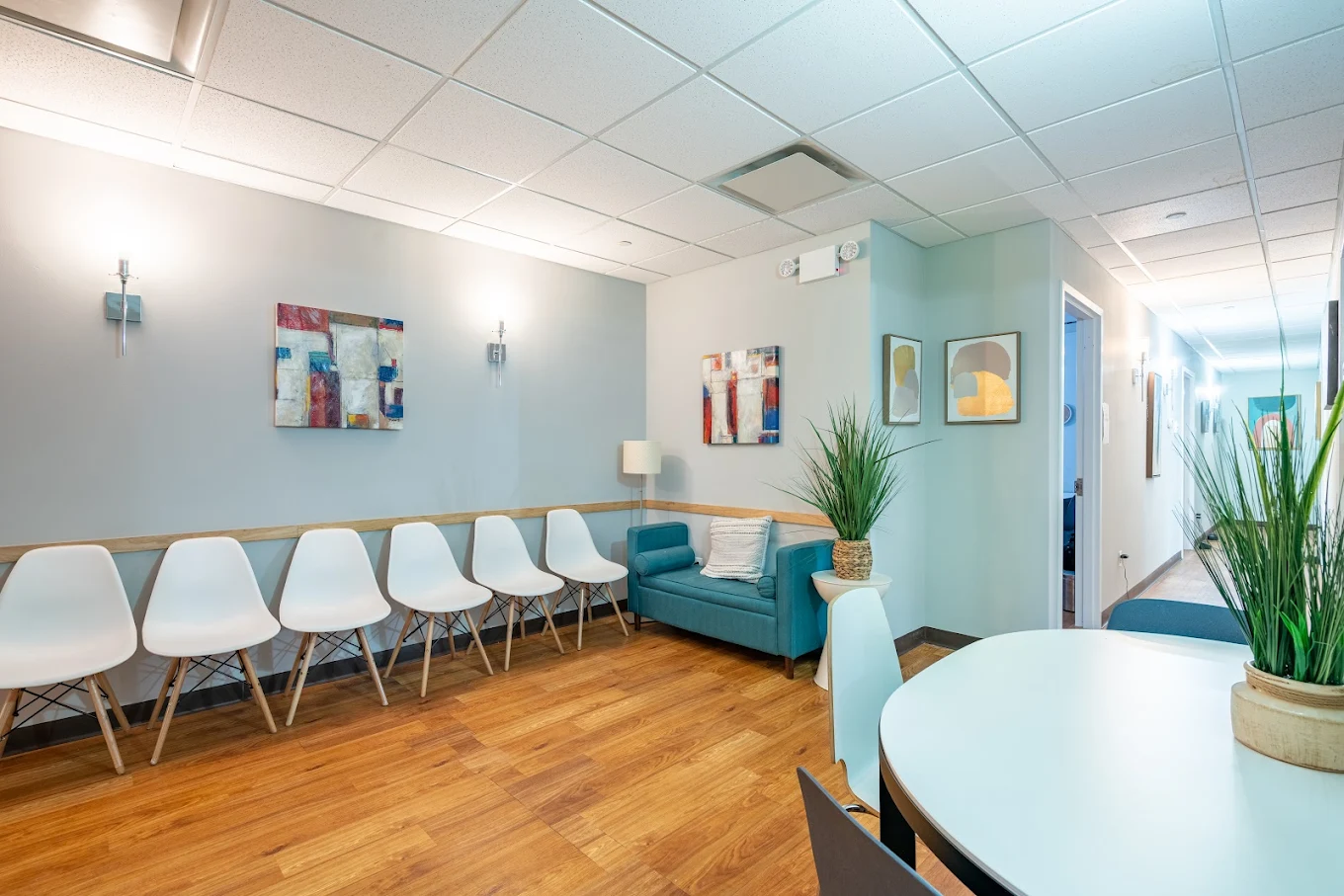
Brooklyn Hourly Offices is a coworking space located in Brooklyn, New York that caters to therapists, coaches, and any professionals seeking a private office space on an as-needed basis.
It was started by two therapists, Deborah and Rachael, who saw a need for flexible, affordable spaces for practitioners to see patients. Today they are one of the most well-known coworking spaces for therapists in the US.
“Having a full-time office really doesn't work for a lot of therapists. We solve that problem because there's no commitment, no lease, no money down.”Deborah Schoenblum, co-founder at Brooklyn Hourly Offices
Center You
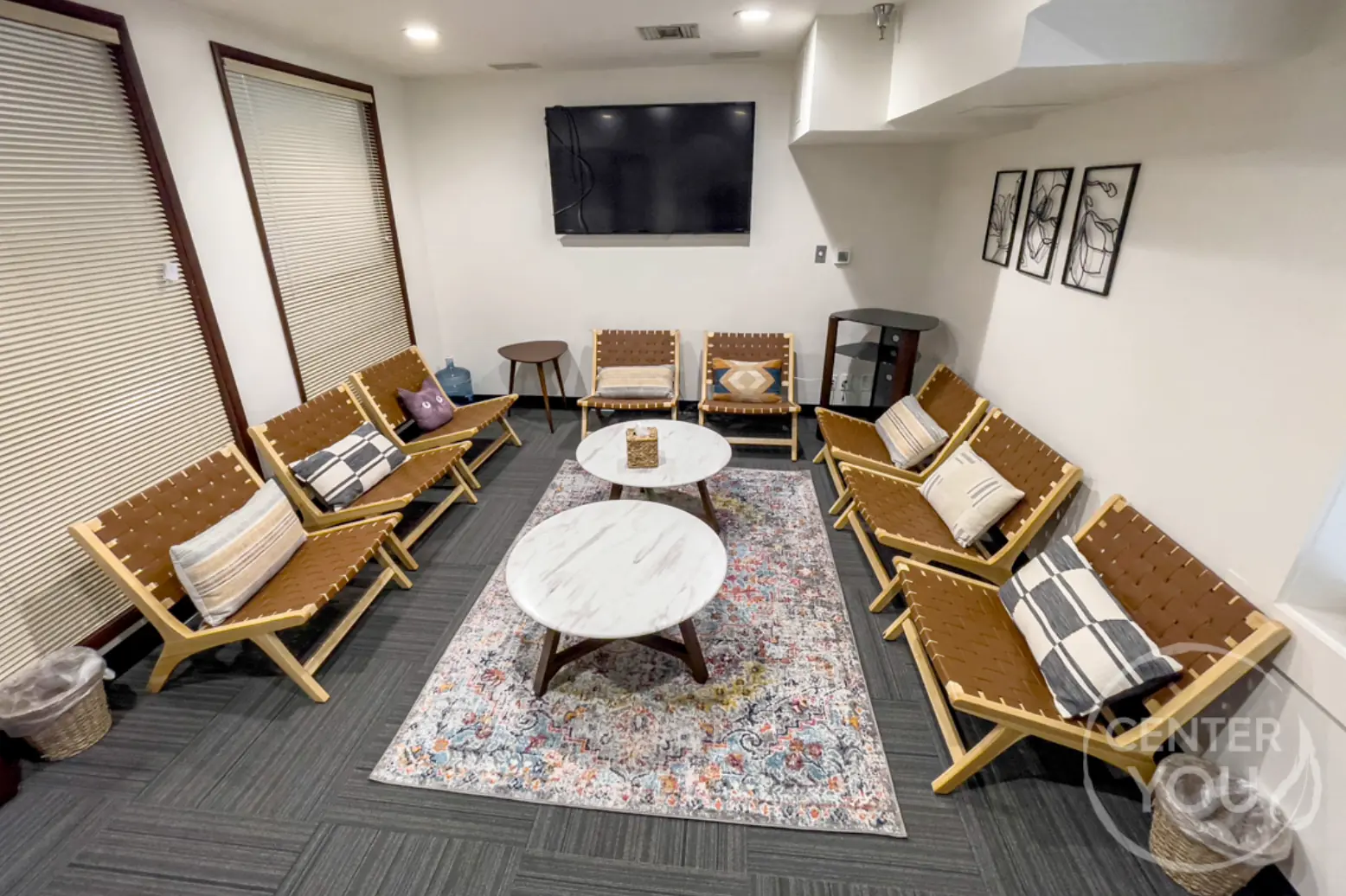
Center You is a shared office space designed to support the unique needs of mental health professionals. They offer fully equipped and flexible spaces for therapists, counselors, and other alternative wellness professionals, along with community-driven events and a network of other therapists supporting you along the way.
Founded by husband and wife duo Nicholas & Eliza, the space is designed to help therapists build their practice while being supported by a community of like-minded individuals.
“The other aspect of it is the community aspect. Our customers are therapists and mental health professionals. And we create a community where they can kind of unload together, hang out, and be with other therapists.”Nicholas Johnson, Co-founder at Center You
This Human Thing
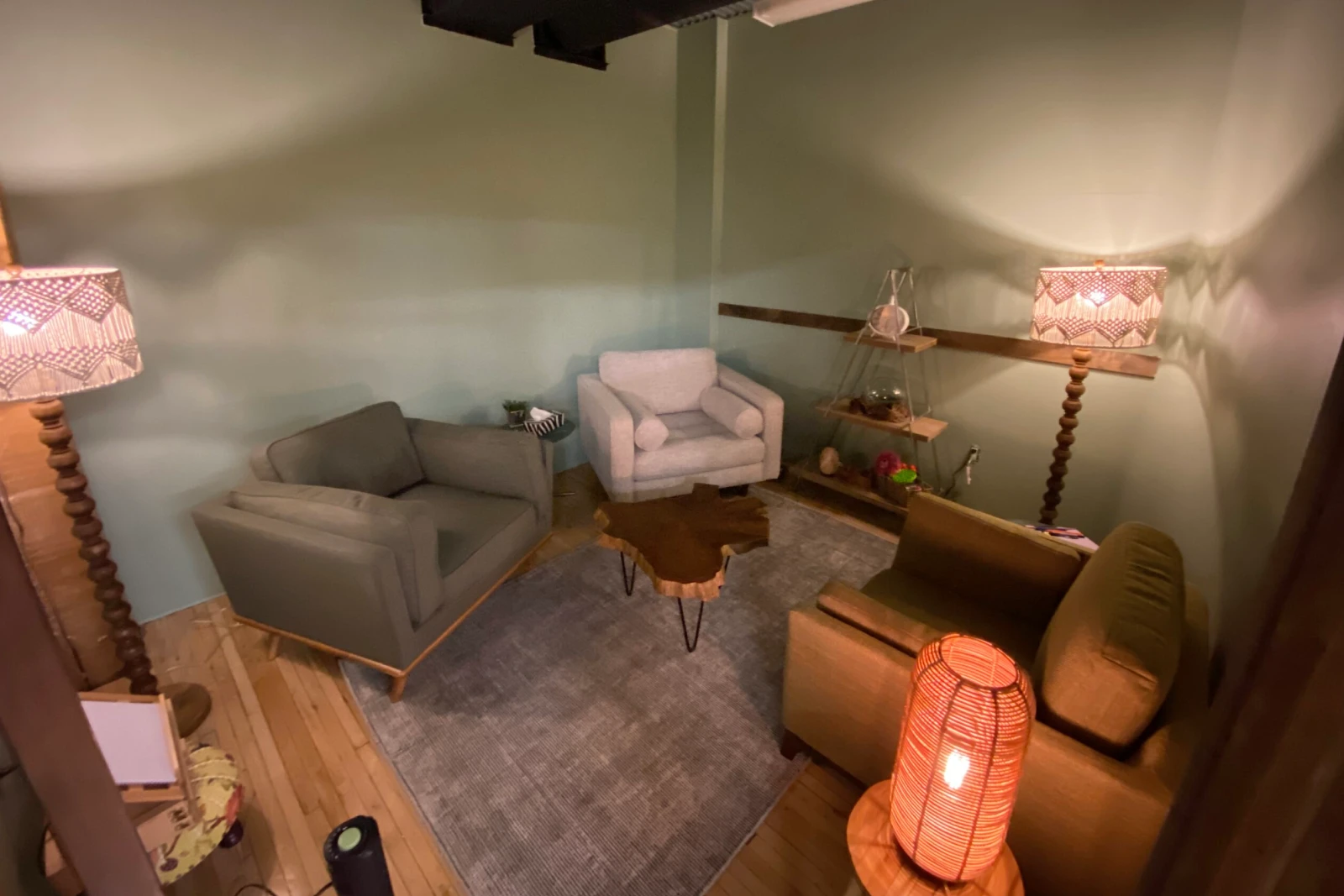
This Human Thing is an inspiring brand that is on a mission to rehumanize mental health. They organize therapeutic groups and workshops, host an accessible therapy program, and operate a coworking space for mental health professionals known as The Heart Center.
The Heart Center features three beautifully decorated and fully furnished therapy rooms, as well as an event space complete with yoga gear, meditation props, and instruments for industry professionals to access on- demand as needed.
“At This Human Thing, our aim is to re-humanize mental health by helping each other navigate and normalize the human experience. We seek to challenge the notion of 'normal' when it comes to mental health.”This Human Thing website
What does a membership plan for a coworking space for therapists look like?
Most coworking spaces offer different tiers of membership plans. As the tier increases, so does the price and so does everything that is included. A membership plan might include:
- Office space access (set number of hours or days a month)
- Amenity access (all amenities or some)
- Space access (limited access or 24/7 access)
- Event ticketing (included or at a reduced cost)
Price your plans accordingly so that there is an incentive and a discount to purchase a more expensive plan. For example, The Therapy Commons in Ontario, Canada offers a Flex Membership Plan as well as a Fixed Membership Plan with a reduced rate for hourly bookings the more hours you commit each month.
You can take a look at the table below for three examples of membership plan pricing in a coworking space.
| Basic Membership | Premium Membership | VIP Membership |
| $400/mo | $700/mo | $1,500/mo |
|
|
|
What technology do you need to run a coworking space for therapists?
Coworking technology can be a vast and overwhelming world, but it doesn’t have to be. When it comes to choosing technology for your therapy coworking space, here’s what we recommend:
- Coworking software: automates all of the day-to-day processes in your space, from bookings to lead follow-ups to product purchases
- Payment gateway: accepts payments automatically from any device while enabling an automated invoicing system
- Access control system: allows for members to securely access your space without needing someone on-site
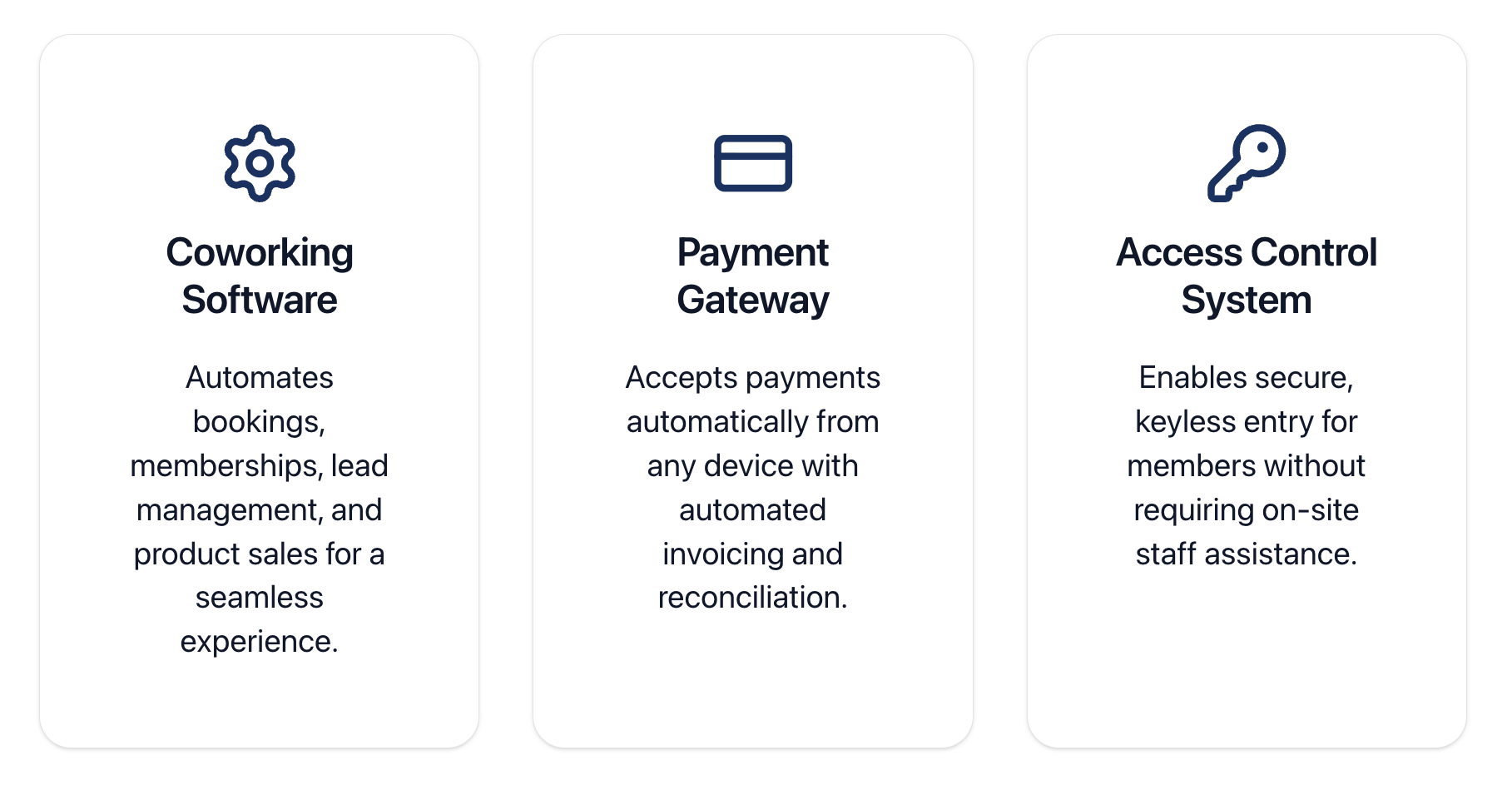
One of the most important things to keep in mind when it comes to technology and running your therapist-forward coworking space? Automation.
How does automation benefit coworking spaces for therapists?
Most coworking spaces for therapists are started by therapists themselves. It makes sense because they know the business so well. However, it also poses a challenge – how do you run a successful coworking space and your own private practice all on a budget?
That’s where automation comes in. Think of automation as another member of your team, helping you take care of all of the manual, redundant day-to-day tasks so you have more time to focus on the things you really care about.

With automation, you can:
- Follow-up with leads as soon as they express interest
- Send tour follow-ups and emails automatically
- Automate financial processes, including chasing up with overdue invoices
Optix is the only coworking software that delivers end-to-end automation, meaning it can automate across the entire member journey from lead to member and beyond. It’s one of the reasons why Optix is the preferred software amongst coworking spaces for therapists.
Download our free eBook for therapy coworking spaces
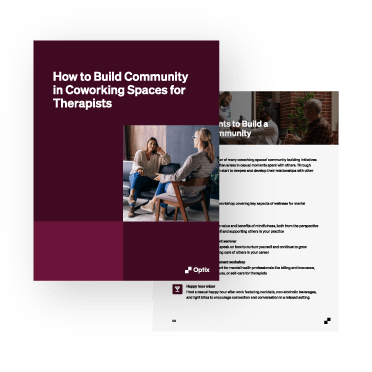
How to launch a coworking space for therapists
The US coworking space market is booming, with a growth of 24% in the last five years. If you’re looking to take advantage of this boom by opening a coworking space for therapists, here’s how to start.
- Figure out who your target market is: in this case, your ideal customer profile (ICP) is mental health practitioners. Decide if you will specialize further by targeting professionals of a certain age (millennials), specialty (women’s health), or value system (community-centric).
- Secure a location: do some preliminary market research to understand where the best location for your coworking space would be. Look for areas with a high concentration of mental health practitioners and low office density (ie. a city where people are more likely to live in smaller apartments).
- Build out your operations: build your tech stack including space management software, payment gateway, access control system, and any other systems you may want to use. We recommend building your tech stack at least ~3 months out from opening.
- Start marketing: create a marketing plan that helps get members in the door, before they even open. Focus on creating value and compelling discounts that therapists can’t say no to (you may have to do some education here on the value of coworking.)
- Plan an opening event: one easy way to drum up buzz in your community is with an open house to celebrate the community opening. Plan on providing drinks, appetizers, and plenty of tours for prospective members.
Automate your coworking space for therapists with Optix
Our team has helped a number of coworking spaces for therapists open their doors, from Brooklyn Hourly Offices in New York to Center You in California to The Therapy Commons in Ontario.
These spaces choose Optix because it’s sleek, automation-forward, and can actually help you get more done with less resources.
Interested in how Optix can help your coworking space for therapists thrive? Get in touch with a member of our talented team – we’d love to make your dream a reality!
Marketing Manager
Kelly Karn is the Marketing Manager at Optix coworking software. She's been covering the latest and greatest in the world of coworking for 4 years and is one of the leading voices in coworking content having written over 300 articles. You can find her work on Coworking Insights, Coworking Resources, Allwork.space, DeskMag, GCUC, and (of course) the Optix blog.
Frequently asked questions
Many therapist-focused coworking spaces include wellness practitioners, coaches, or creative freelancers who value calm, private environments. The key is zoning spaces so therapy rooms stay soundproof and client-focused, while shared lounges and coworking areas remain welcoming to all members.
Therapist coworking spaces usually offer flexible, membership-style leases rather than long-term commercial contracts. Most operate on hourly, daily, or monthly credits for private room bookings, giving therapists freedom to scale their practice up or down. This flex structure attracts both new practitioners testing private practice and experienced clinicians looking for part-time space without traditional lease obligations.
Ensuring confidentiality in a therapy coworking space starts with smart design and clear policies. Private rooms should have solid-core doors, sound insulation, and white noise systems to prevent overheard conversations. Access should be controlled so only booked members can enter rooms, and client waiting areas should offer privacy and minimal traffic.
Meet them where they are: target graduate programs, supervision groups, and local therapist associations, and offer first-session credits. Content about starting a private practice in a coworking space could perform well, especially local SEO techniques to rank high in Google.
A similar look across rooms reduces client disruption when therapists switch spaces, which matters in a flex environment where availability changes. Simple, consistent décor helps a coworking space deliver predictable comfort clients can trust.



